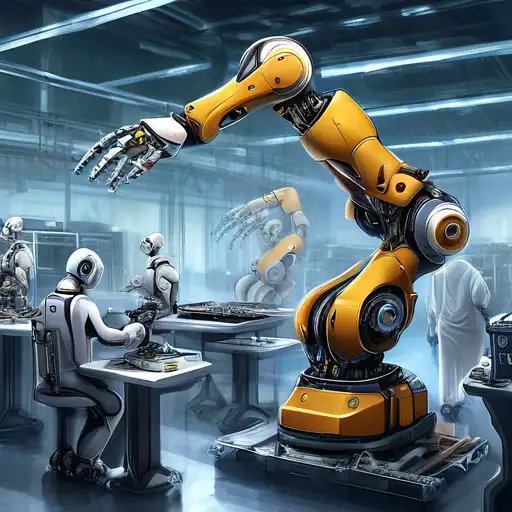The Revolutionary Impact of Robotics on Modern Manufacturing
In the ever-evolving landscape of industrial production, robotics has emerged as a cornerstone of innovation, driving efficiency, precision, and scalability in manufacturing processes. This transformative technology is not just reshaping how products are made but is also redefining the competitive dynamics of industries worldwide.
Enhanced Efficiency and Productivity
Robotic systems are unparalleled in their ability to perform repetitive tasks with unwavering accuracy and speed. By integrating robotics into manufacturing lines, companies can achieve significant improvements in production rates and operational efficiency. This leap in productivity enables businesses to meet growing consumer demands without compromising on quality or increasing costs.
Precision and Quality Control
The precision of robotic arms and automated systems ensures that every product meets stringent quality standards. Unlike human workers, robots do not suffer from fatigue or variability in performance, which minimizes errors and reduces waste. This level of consistency is crucial in industries where precision is paramount, such as aerospace and medical devices manufacturing.
Scalability and Flexibility
One of the most significant advantages of robotics in manufacturing is the ability to quickly scale operations up or down based on demand. Advanced robotic systems can be reprogrammed and adapted to new tasks, offering manufacturers the flexibility to pivot production lines without extensive downtime or retooling costs.
Worker Safety and Job Creation
While there are concerns about robotics displacing human jobs, the reality is more nuanced. Robots take over dangerous and physically demanding tasks, reducing workplace injuries and allowing human workers to focus on more complex and creative aspects of production. Moreover, the robotics industry itself is a source of new job opportunities, from maintenance and programming to system design and integration.
Future Trends in Robotics and Manufacturing
The future of manufacturing lies in the further integration of robotics with emerging technologies such as artificial intelligence (AI) and the Internet of Things (IoT). These advancements will enable smarter, more autonomous systems capable of self-optimization and predictive maintenance, further enhancing efficiency and reducing operational costs.
As we look ahead, it's clear that robotics will continue to play a pivotal role in shaping the future of manufacturing. By embracing this technology, companies can not only improve their production capabilities but also gain a competitive edge in the global market.
For more insights into how technology is transforming industries, explore our articles on automation in manufacturing and the future of work.
